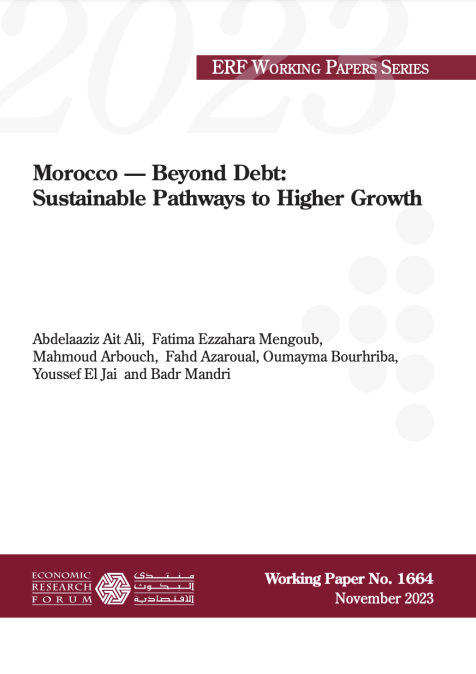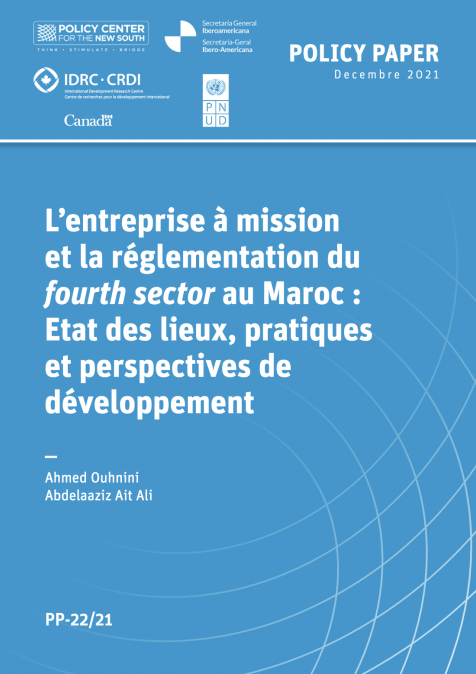Publications /
Research Paper
This Working Paper was originally published on erf.org.eg
Like many developing countries, Morocco faced a significant increase in public debt following the COVID-19 pandemic. In 2022, Central government debt reached 69.6% of GDP, up from 60.3% in 2019, highlighting the need for a thorough analysis of debt sustainability. This paper examines the main trends in the Moroccan economy over the past two decades, including growth performance, monetary policy and financial conditions and external balances. It provides an overview of Morocco's economic landscape and highlights the main challenges that have affected the orientation of fiscal policy. It uses a debt sustainability analysis model to assess the trajectory of fiscal policy, examining different scenarios including potential shocks such as inflation, GDP growth, and interest rates. The results of the model show that, under most scenarios, Morocco's public debt should stabilize and consolidate, with an overall sustainable trajectory. However, in a pessimistic scenario characterized by persistent domestic inflation, a permanent decline in economic growth and rising interest rates at both national and international level, public debt increases steadily. The paper concludes with policy recommendations focusing on short-, medium-, and long-term reforms.






